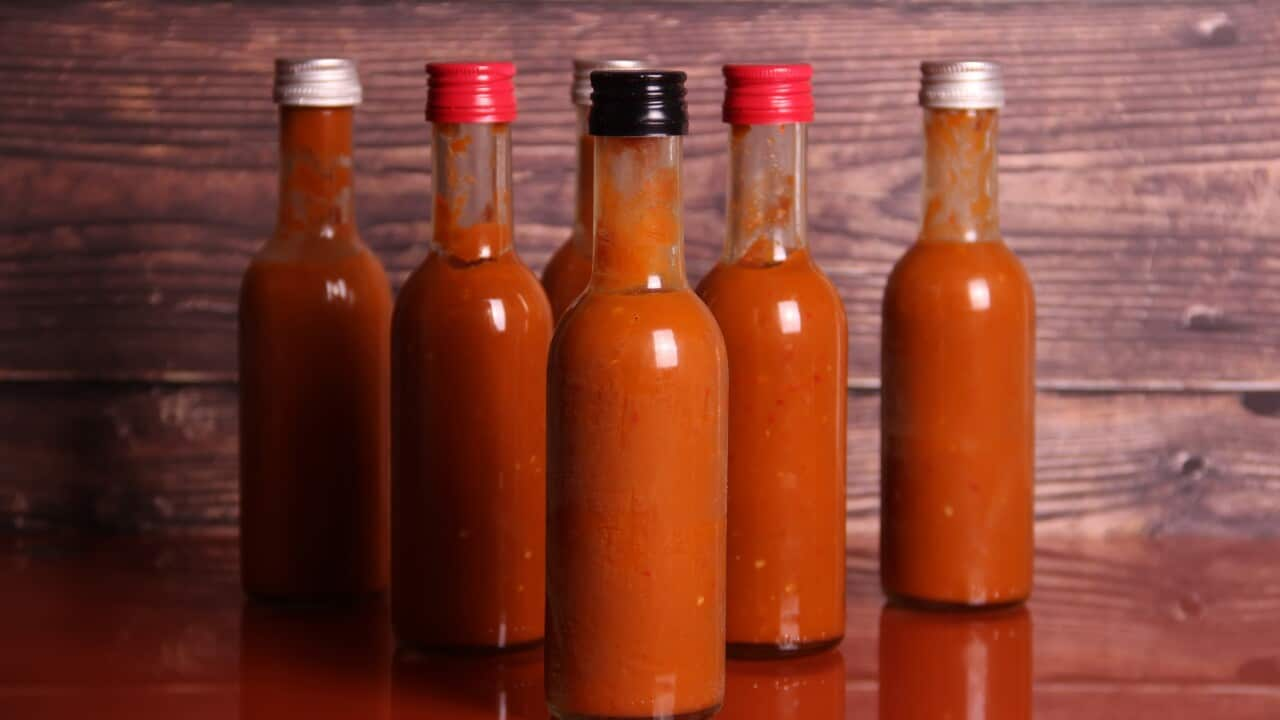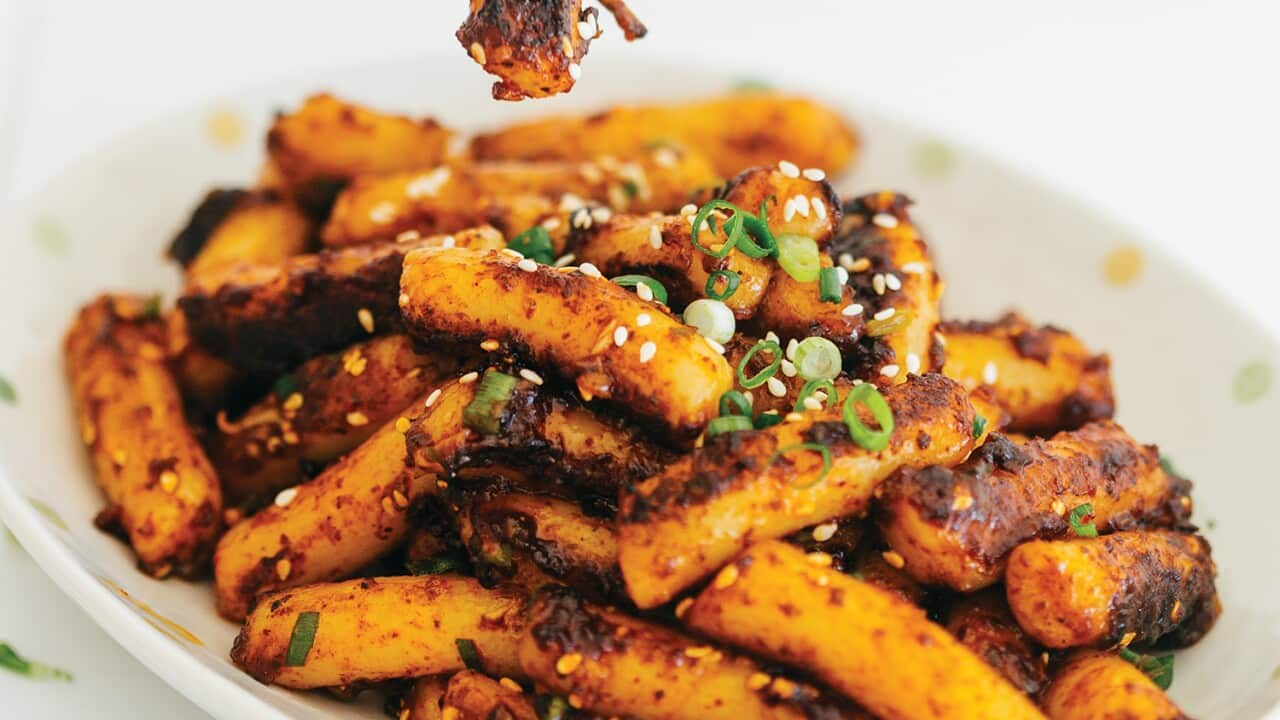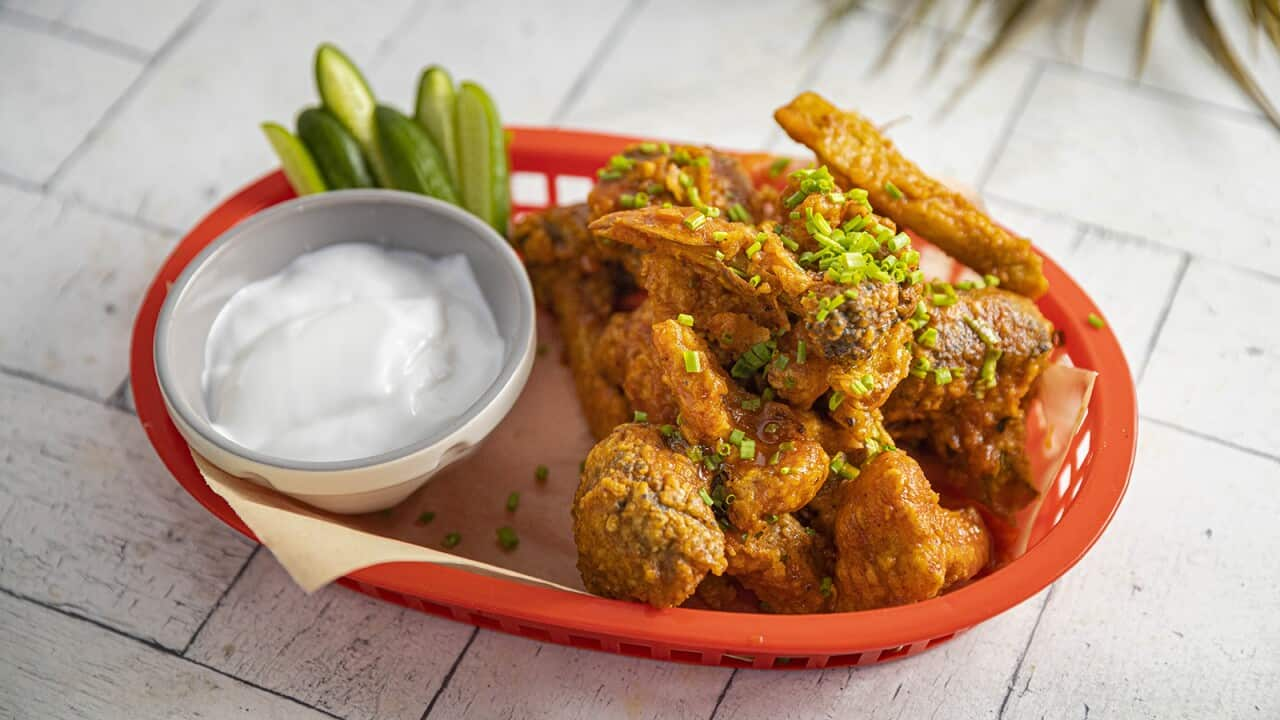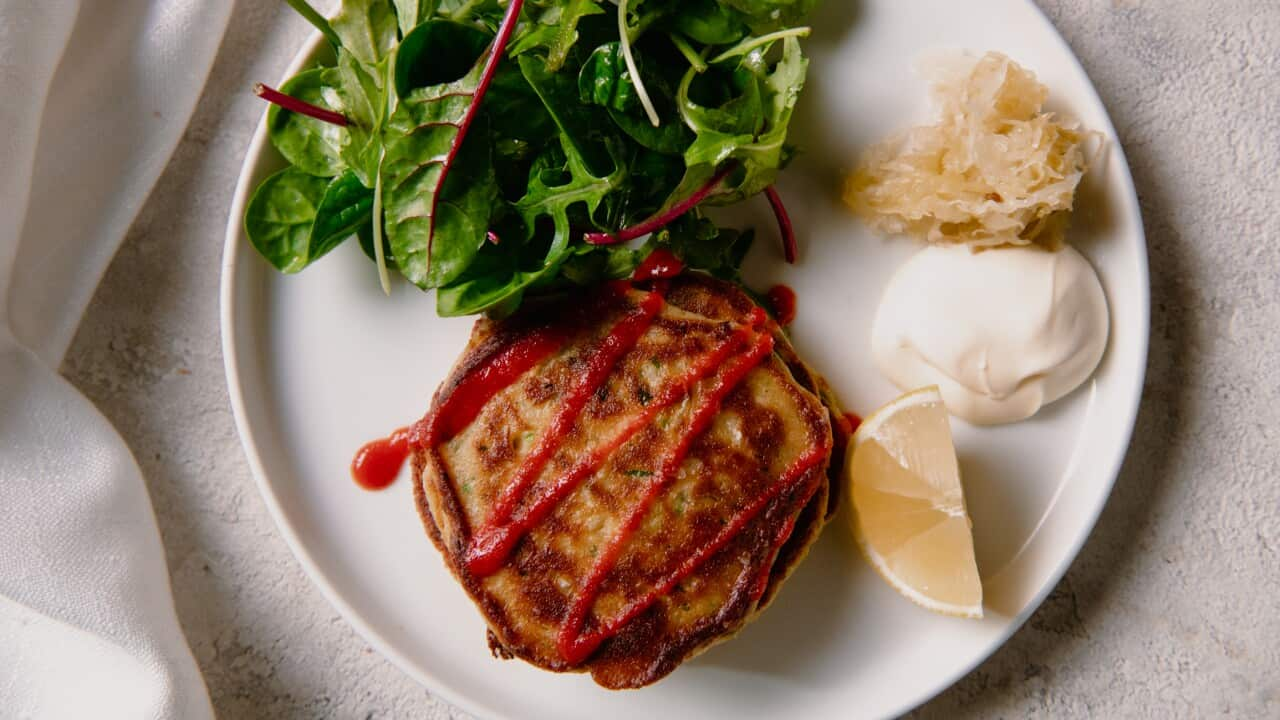I grew up with a mother who put a bottle of sambal in her bag whenever we'd go out to eat. She started this habit when she immigrated to Melbourne 18 years ago. At picnics, barbecues, potlucks and restaurants, you'd be hard-pressed to find her without her trusty bottle of Belibis sambal, an Indonesian chilli sauce made of tomatoes, chillies, garlic, sugar and vinegar. As whiny teenagers, my sister and I would tell her to put it away each time she whipped out the 340 ml bottle. But she didn't give two hoots what we thought.
Rosa Cienfuegos, chef and owner of Tamaleria & Mexican Deli in Sydney, NSW, laughs when I tell her this.
Her son, now in his twenties, used to do the same when he was a teen. For as long as she's been in Australia, Cienfuegos has stashed sachets of her beloved Valentina hot sauce in her bag and car.
Valentina goes everywhere she goes, even to the movies. "My son would say, 'Mum, why are you doing this, don't be weird!' But Valentina is the sauce you add to the popcorn in Mexico."

Credit: Supplied
When you are used to eating spicy food, you can't go back.
The heat of hot sauce can be addictive, but Dr Josephine Okurame, a research officer and senior lecturer at the University of Sydney and owner of Sydney-based Nigerian catering business Charcoal and Chops, says people can also like hot sauce because it is something familiar.
Okurame says her hot sauce, named Subsa, in her purse, contains tomatoes, Scotch bonnet peppers and typical Nigerian spices of curry, thyme, and chilli, as well as onions. When she adds it to a meal, "It makes you feel like you're eating something from home, and makes you feel like you're holding onto something that you value, like your culture or your home, and bringing that with you everywhere you go."
The demand for a travel-size version of the hot sauce is so high within the Nigerian community in Sydney that it compelled Okurame to make one.
My mother's tie to Belibis runs deeper than her love of chilli and the sauce's sweet, garlicky flavour.
As a 10-year-old, her sister-in-law took her to Jakarta's Chinatown, where a woman sold homemade sambal from a shophouse, a sambal that would later be branded as Belibis.
"The lady was sitting on a short stool, pouring the sauce from a big aluminium pot into green-coloured beer bottles. My sister-in-law introduced me to that chilli, and my brother loved it too, so ever since then, we always bought this particular brand of chilli."

Credit: Supplied
In these women's hometowns in Indonesia, Mexico and Nigeria, all eateries and restaurants offer hot sauce at no extra cost. Having to sometimes pay for chilli sauce at a restaurant in Australia is something that took some getting used to when they came over, so bringing their own helped to soften the blow.
It connects you to where you come from.
All three women tell me that thankfully, so far, no restaurant server or owner has asked them to stop. The practice is something I hope people can appreciate because it boils down to this: it's a quiet proclamation of a person's cultural identity when they are far from their home country.
Cienfuegos puts it this way: "It connects you to where you come from, to your roots. I'm proud to put [the bottle] in front of everyone so they see that this is how I learned how to eat. It's my background, this is what my mum used to do, what I hope my son does."
My mother feels a similar sense of pride and connection when she sees the fiery-red bottles of chilli sauce dotted across the tables at Sydney Fish Market.
"You will notice that those who have the additional sambal bottle are all Indonesian. And I feel proud of being silly, that we are all the same."
Cienfuegos says, "You feel, like, cheeky, you know?
"When I go to the movies and I take my Valentina sauce out, and maybe no one is watching me while I'm in the dark, it makes me feel that I'm in Mexico for a bit, or that I'm having a little bit of Mexico with me."
HOT SAUCE AROUND THE WORLD

Pineapple hot sauce














